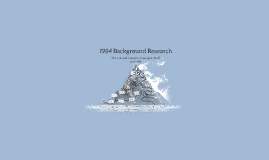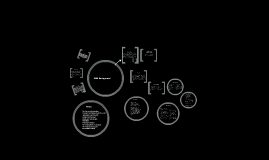1984 Background
Transcript: 1984 Character List Communist Russia & 1984 Winston’s mother– disappeared years ago; appears only in Winston’s dreams and vague memories. Prole Woman-A heavyset neighbor of Winston’s, he watches her singing to herself as she hangs out the laundry. She is a symbol of the future, representing the spirit of the proletariat that cannot be crushed. Stalin Re-writes History...Literally Emmanuel Goldstein–Enemy of the People, commander of the Brotherhood, former member of the Party, author of the “book,” probably a creation of the Party. Katharine–Winston’s wife, disappeared 11 years ago, loyal member of the Party. Published in 1948 and set 36 years in the future, 1984 is George Orwell’s dark vision of the future. Written while Orwell was dying & based on the work of the Russian author Yevgeny Zamyatin, it is a chilling depiction of how the power of the state could come to dominate the lives of individuals through cultural conditioning. To refute contradictory information, Stalin had histories rewritten to show that Lenin had favored his accession to power. He enjoyed a certain amount of hero−worship as cities were named in his honor. No Freedoms in Russia In 1921 Stalin became liaison between the Central Control Commission and the Central Committee; in this capacity he could control the purges designed to keep the party pure. He used this position to his advantage. 1984 Background Five Year Plans Syme–Winston’s friend, specialist in Newspeak, employee in the Records Department. Mr. Charrington–63−year−old shopkeeper, rents hideaway to Winston, secret member of the Thought Police. Ampleforth–a poet. Martin–O’Brien’s servant, fellow Party member. Moreover, events in Communist Russia also impacted the plot and theme of 1984. From 1922 when Lenin suffered a stroke until 1928—four years after his death—there was a power struggle between Leon Trotsky, Minister of War, and Joseph Stalin, then Secretary of the Communist party. Stalin continued to grow even more influential as a member of the Politbureau, a small group of party bosses where his function was to manage the day−to−day activities of the Communist party. Character List Tillotson–employee in the Records Department, disliked by Winston. Tom Parsons–Winston’s neighbor at Victory Mansions, devoted to the Party, arrested for “thoughtcrime.” Mrs. Parsons–Tom’s wife, about 30, looks older, possibly will be denounced by her children to the Thought Police. Communist USSR Character List Impact of 1984 Under Stalin’s dictatorship, the USSR had become a one−party state where elections were a mockery.Although all were eligible to belong to the Communist party, membership was, in fact, a privilege. The Power of Big Brother Freedom and Enslavement/Free will Appearances and Reality Loyalty and Betrayal Utopia and Anti-Utopia Patriotism Personal Rebellion The Degradation of Language The Triump of Drudgery Information Control Changes were felt in Russian society as well. Freedom to choose one’s job was non−existent; those who resisted were sent to labor camps. Stalin’s dictatorship was complete when the vast majority of unskilled workers became controlled by a minority of loyal skilled workers and bureaucrats who enjoyed certain privileges restricted from the masses. Thus, the gulf between the classes widened and a new elite was created. In 1928 began the era of the Five−Year Plans, each of which set ambitious goals for the next five years. The goals of the first Five−Year Plan were never actualized; nevertheless, the government announced that they had been realized in 1932. Immediately, another Five−Year Plan went into effect. Joseph Stalin Stalin the Main Man in Russia 1934-1936 Winston Smith–main character of the novel, 39 years old, employee at the Ministry of Truth, inquisitive, intelligent.Big Brother–supreme leader of the Party, controlling force of Oceania, never physically appears in the novel but is ever−present. From 1928 until World War II, Stalin enjoyed supreme power in Russia. Among the changes he brought to Russian life were collective agriculture, industrialization with forced labor, and the build−up of the authoritarian state combined with the annihilation of all political opposition. Themes Character List The widespread impact of 1984 is evidenced by the changes in language that it effected. Today, the word “Orwellian” refers to any regimented and dehumanized society. Words like “Newspeak,” “unperson,” “doublethink,” and “thoughtcrime” have become part of the English language. And the familiar phrase “Big Brother Is Watching You” has become synonymous with the concept of a totalitarian state. Thought Police–secret militia; Big Brother’s agents who eliminated potential rebels. O’Brien–member of the Inner Party, employee at the Ministry of Truth, Winston’s chief. Julia–Winston’s lover, 26−year−old employee at the Ministry of Truth, worker for the Junior Anti−Sex League. There were critics, however, whom Stalin eliminated during the Great Purges of 1934−1938,

















